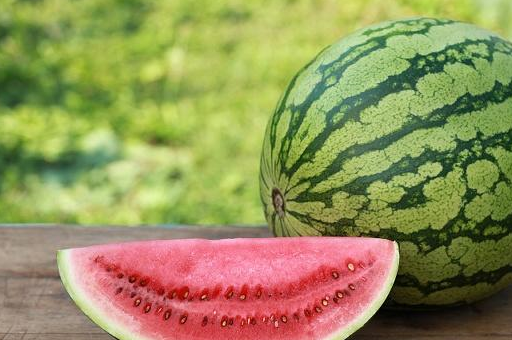The scorching summer has arrived, and air conditioning combined with watermelon is a staple for many people’s cool summer. Eating chilled watermelon or drinking fresh watermelon juice after returning home is a wonderful experience. However, for diabetics, it isn’t so comfortable; they often hesitate before eating watermelon, fearing it will raise their blood sugar. So, how can diabetics enjoy watermelon without worry? Let’s explore this together.
Watermelon does contain a certain amount of sugar, but it is actually not as high as many people imagine. Many diabetics are convinced that watermelon has a very high sugar content. This is not the case; the sweetness of watermelon may lead most uninformed consumers to instinctively think it is a high-sugar fruit. Particularly for diabetics, whose blood sugar is difficult to control, eating watermelon can significantly impact their condition negatively. However, the sugar content in watermelon is not very high. Watermelon has a high water content, which results in a sugar concentration of about five to six percent, thus classifying it as a low-sugar fruit.
Watermelon is rich in nutritional components, including vitamin C and vitamin B, along with abundant minerals and lycopene. Therefore, as mentioned above, watermelon can still be consumed by diabetics, but it is crucial to choose the appropriate variety for diabetics. This is because the sugar content varies among different types and regions of watermelons, so personal health conditions should dictate food choices. Diabetic patients must ensure their blood sugar is relatively stable before consuming watermelon, and they should limit their intake to 100-200 grams. This amount has a smaller impact on blood sugar; overeating watermelon can lead to significant fluctuations in blood sugar levels.
Diabetic patients should choose low-sugar watermelons for consumption, and they need to be well-informed about the types of watermelon and the environmental factors such as fertilization that affect their growth, as these factors influence the sweetness and taste of the fruit when mature. Therefore, after selecting the right watermelon, diabetics must make a comprehensive judgment on how much watermelon they can consume after each meal daily, based on their health status and condition. It’s imperative not to indulge in excessive watermelon consumption; even though watermelon is edible, overeating can still cause significant fluctuations in blood sugar, so caution is key.
Diabetic patients can consume a moderate amount of watermelon, but they should not overindulge and should only taste it lightly. The same goes for other low-sugar fruits; just because they have low sugar content does not mean one can eat them excessively, as this would not be helpful for their condition.


